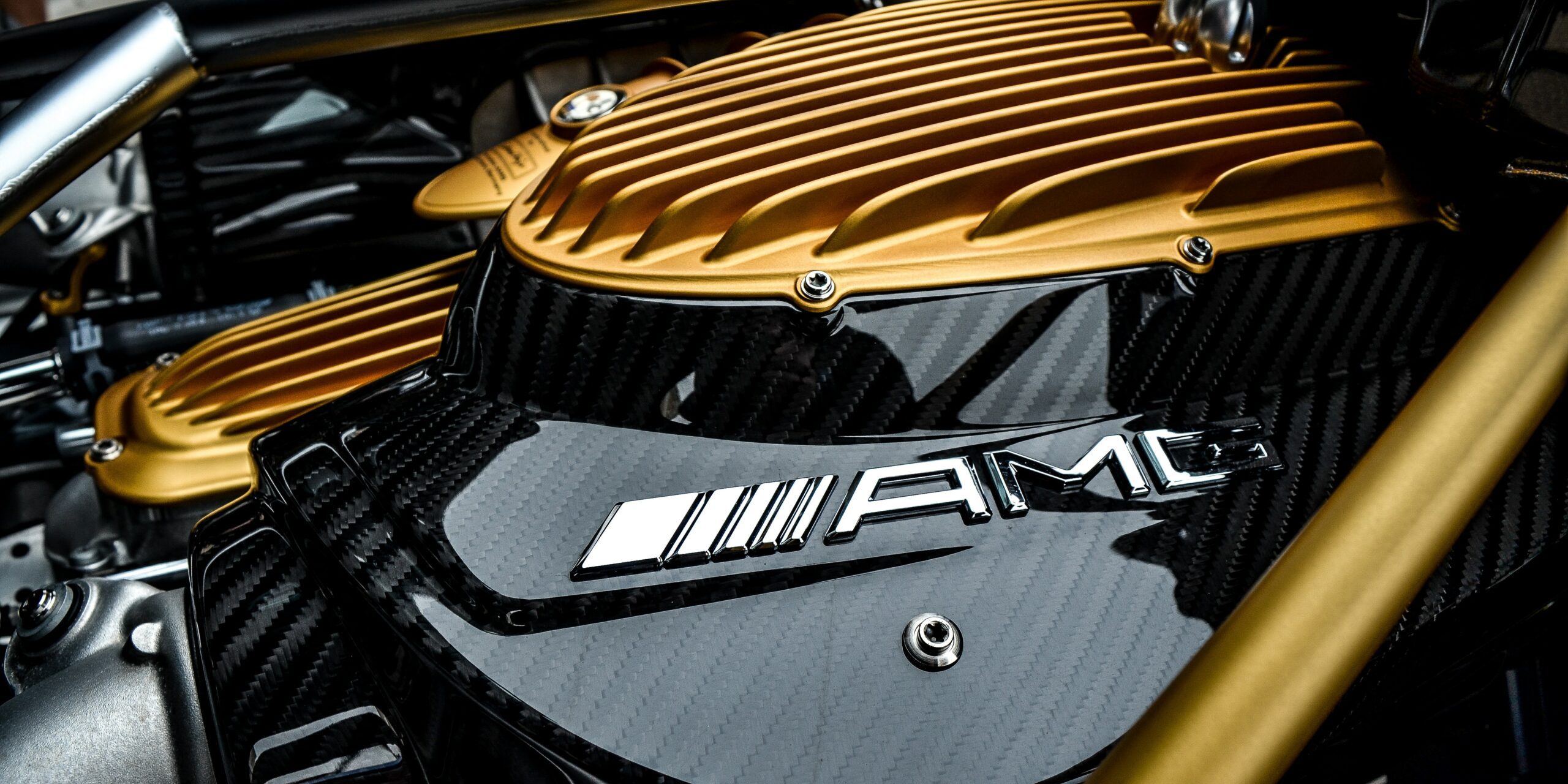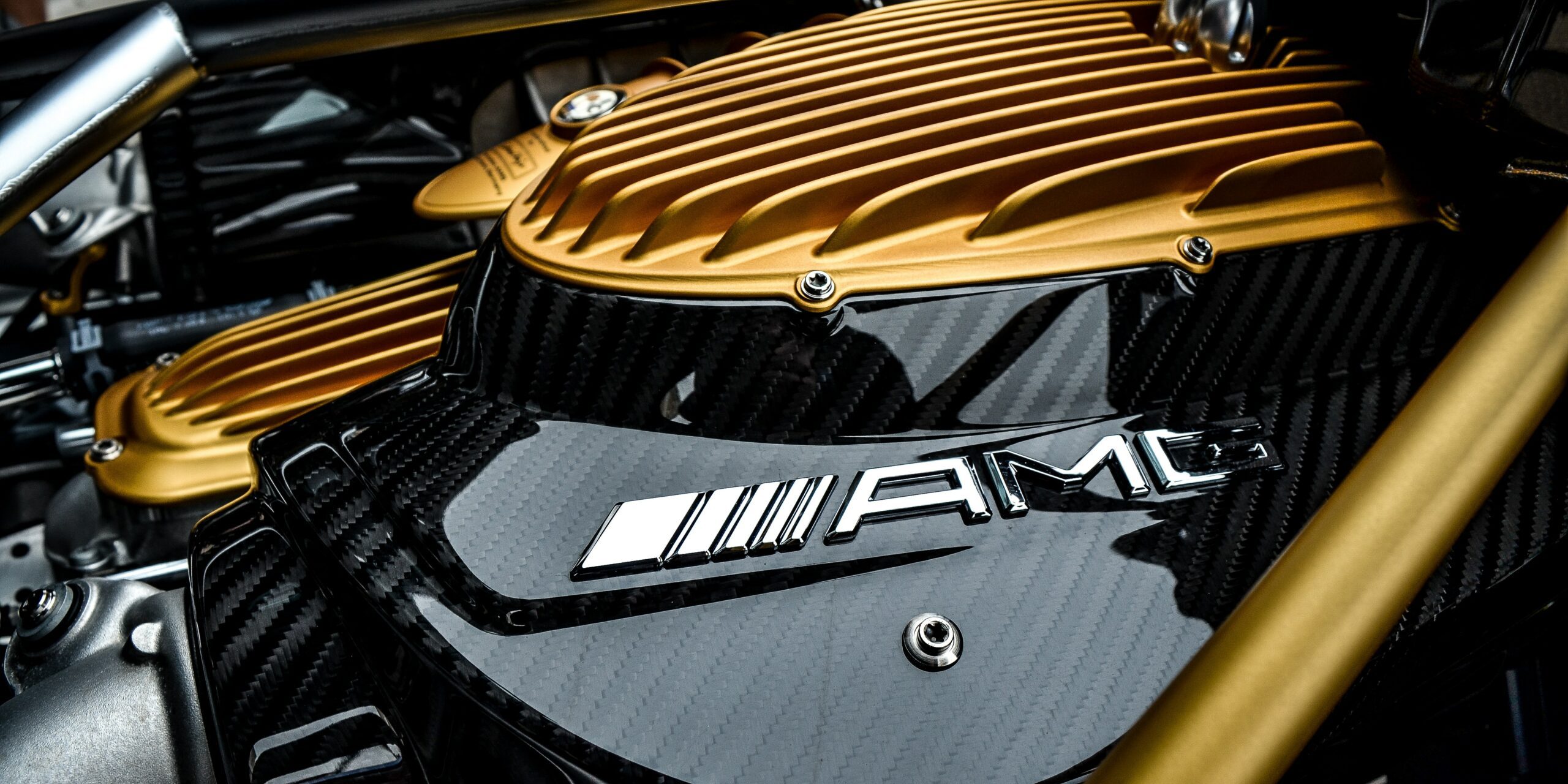Why is my car ticking?


Ticking in a vehicle can be caused by various factors and requires prompt attention to prevent potential hazards. Here are some plausible reasons behind the ticking noise:
- Worn out or faulty engine components
- Inadequate lubrication of engine parts
- Defective bearings or pulleys
- Damaged exhaust manifold or gaskets
- Insufficient coolant levels leading to overheating
It is essential to address ticking noises immediately as neglecting them may result in long-term damage that could significantly affect your vehicle’s performance. Additionally, regular maintenance checks and topping up the necessary fluids can prevent future issues.
A proactive approach, such as routinely checking your car for underlying problems and scheduling regular maintenance checks, can help avoid expensive repairs later on.
Engine Issues
To address engine issues concerning ticking in your car, delve into the section on engine issues with sub-sections including Low Oil Pressure, Worn Out Engine Parts, Faulty Hydraulic Lifter, and Damaged Rocker Arm as solution options.
Low Oil Pressure
Insufficient lubricating oil delivery to an automobile engine can cause suboptimal \”oil pressure conditions\”, resulting in gradual performance degradation, excessive engine wear and tear, and eventual failure. Hence, drivers must ensure that their vehicle’s oil pressure stays within manufacturer-recommended levels through regular maintenance routines. A decrease in oil pressure can be detected by the dashboard warning lights or a physical inspection of dipstick readings.
It is vital to note that low oil pressure is often due to insufficient amounts or deteriorated quality of the oil supply, but it may also result from defects in the engine’s oil pump, filter and relief valves, or harm caused by leakages and clogs. Drivers must take these factors into account when searching for solutions to low-pressure issues.
In addition to checking for visible leaks and timely refills of motor oils, one solution includes replacing defective parts such as damaged hose clamps or failing gaskets with high-quality matching components under expert supervision.
According to industry experts like Autoblog, running a car with inadequate oil levels can cause irreparable damage to crucial engine components.
Worn Out Engine Parts
Engine troubles can arise from the natural wear and tear of various engine components over time. The operation of internal combustion engines entails high temperatures, pressures, and parts moving at high speeds, which increases the likelihood of wear and failure in certain parts.
These worn-out engine pieces might be among several crucial components that contribute to the correct operation of an automobile engine. Hence, it is essential to keep them in excellent condition for maximum performance. Failing to check and replace these parts regularly could lead to higher malfunctions such as a seized-up engine or other significant issues.
Regular maintenance and fluid replacement help extend the lifespan of vehicle engine components. Still, there are specific causes for particular mechanical issues encountered by motorists that cannot be ignored. Cracked hoses or belts, burned valve seats, broken rings causing oil usage or compression loss, worn bearings leading to noisy operation can cause increased fuel consumption, reduced power output, and acceleration.
Pro Tip: Regularly checking operating fluids like coolant or oil levels in a car’s internal combustion process helps detect potential engine problems earlier before they become significant catastrophes.
Faulty Hydraulic Lifter
When the hydraulic lifter fails to function properly, it can result in a ‘ticking’ sound coming from the car’s engine. This issue can be caused by several factors, including low oil pressure and buildup of debris within the engine.
To resolve this problem, it is recommended to check and maintain proper oil levels regularly. Additionally, cleaning or replacing the lifters, as well as flushing out any debris from the engine can improve the functioning of the hydraulic lifter.
It is important to note that continuing to drive with a faulty hydraulic lifter can result in more severe damage to your engine, leading to costly repairs. Therefore, it is essential to address this problem as soon as possible by taking your vehicle to a trusted mechanic for professional inspection and repair.
Overall, ensuring proper maintenance of your engine remains crucial for long-term functionality and preventing costly damage down the line.
Damaged Rocker Arm
Signs of rocker arm damage in an engine can often be identified by a ticking or clattering noise. The rocker arm is responsible for transferring motion from the camshaft to the valves, but when it becomes damaged, it can no longer complete this task effectively.
A damaged rocker arm can lead to increased wear on other engine components such as the camshaft and lifters. This can cause further damage and eventually result in total engine failure.
To prevent rocker arm damage, proper lubrication and regular maintenance are key. Keeping the engine oil clean and replacing it regularly can go a long way in preventing unnecessary friction and wear.
Pro Tip: It’s recommended to have your engine inspected by a professional mechanic if you notice any unusual noises or performance issues to catch potential issues such as damaged rocker arms before they become significant problems.
Exhaust System Issues
To solve the issues of your car’s exhaust system, this section with the title ‘Exhaust System Issues’ with sub-sections ‘Cracks or Holes in Exhaust Manifold’ and ‘Failed Catalytic Converter’ will help you out. In the following sub-sections, we will briefly introduce the solutions for these exhaust system issues.
Cracks or Holes in Exhaust Manifold
The Exhaust Manifold is prone to damage due to the heat and pressure it undergoes. The presence of fractures or openings can lead to engine inefficiency and even failure. Damaging exhaust leaks may cause unfavorable carbon monoxide exposure, hampering occupants and maybe fatal if not taken care of.
If there are any damages in the Exhaust Manifold, emissions may increase, resulting in harmful gases like hydrocarbons, nitrogen oxides, and carbon monoxide being released into the atmosphere along with an unpleasant smell around the vehicle. Motorists must get their vehicle inspected regularly for any signs of damage or carbon buildup in the Exhaust System.
Relevant suggestions should be acted upon immediately instead of dragging it until potentially further irreversible engine failure occurs, which might be more expensive than repairing a faulty Exhaust System.
According to the book “Auto Repair for Dummies,” motorists who had their cars’ exhaust systems examined on schedule got a 40% reduction in repair costs compared to those who did not inspect them at all.
Failed Catalytic Converter
A malfunctioning component in the exhaust system, responsible for reducing harmful emissions, is known as a Conservationist. If this part fails to perform its function, it is called a “Failed Emissions Reducer“. This dilemma can lead to reduced fuel efficiency and increased pollution. It could also have a detrimental impact on state emissions testing.
A faulty catalytic converter can lead to a wide range of issues, including increased carbon monoxide levels, which are hazardous to human health and the environment. Furthermore, it may generate poisonous nitrogen oxides that irritate respiratory systems and harm flora and fauna. The engine warning light coming on or loud exhaust noise might be symptoms of a failed emissions reducer.
A failing catalytic converter also reduces vehicle power output, resulting in reduced acceleration and engine performance. In addition, if it isn’t addressed promptly, the issue could cause damage to other parts of the car’s exhaust system.
Thus, if a driver suspects their automobile’s catalytic converter is failing or has received notice from an emission control agency about high levels of toxic emissions in their automobile’s exhaust system, it’s important to get it inspected by certified technicians as soon as possible before additional damage occurs or expensive repair bills pile up.
Other Possible Causes of Ticking
To explore alternative explanations for engine ticking, delve into the section on “Other Possible Causes of Ticking” with sub-sections such as worn-out belt pulleys, damaged water pump, improperly lubricated engine components, and malfunctioning fuel injectors. Understanding these potential causes can aid in diagnosing and addressing engine issues.
Worn-out Belt Pulleys
A possible cause of clicking since the belt system is composed of various components that work synchronously to power the engine. When one component malfunctions, it affects the others in the system. The pulleys on which the belts roll are among those crucial parts.
Damage or worn-out pulleys can produce a ticking sound when they come into contact with other parts of the belt system. This noise results from wear and tear over time or when they become contaminated with oil or other substances. Neglecting minor issues with pulleys can lead to significant problems like snapped belts and damage to other critical engine components.
To ensure optimal performance, inspect and replace damaged pulleys as soon as possible, using high-quality ones that match your vehicle’s specifications. Regular maintenance is also necessary to keep all components in the belt system in good working condition.
Remember that ignoring subtle ticking sounds can lead to more expensive repairs in the long run, so it’s wise not let these signs slide unheeded.
Don’t let worn-out belt pulleys affect your car’s performance and safety! Make sure you prioritize regular inspections and timely replacement of any damaged or contaminated parts relevant for smooth operation befitting your automobile.
Damaged Water Pump
A malfunctioning cooling system is a likely cause of unusual ticking sounds in your vehicle. Specifically, problems with the water pump can result in this noise. The device helps to circulate coolant throughout the engine block, keeping it at the proper operating temperature.
If you hear ticking sounds emanating from the water pump, this could indicate a worn or damaged bearing or impeller. A malfunctioning water pump will affect coolant circulation and may lead to overheating issues and engine damage. It’s important to get this problem addressed as soon as possible.
It’s worth noting that a damaged water pump is not the sole cause of ticking noises in vehicles. Other possible culprits include valvetrain problems, faulty lifters, and exhaust leaks. These issues should also be checked out by a qualified mechanic to prevent more severe damage down the line.
Pro Tip: Regular maintenance on your vehicle’s cooling system can help prevent issues with the water pump and other components that can lead to strange ticking sounds.
Improperly Lubricated Engine Components
Insufficient lubrication in the engine’s components can cause an unusual ticking sound. The frictional forces acting on these parts increase substantially, leading to increased wear and tear, which ultimately results in audible ticking sounds emanating from the engine.
Worn-out bearings, piston pins or connecting rod ends may also be responsible for a ticking noise. These worn-out components are not able to maintain proper lubrication, causing metal-on-metal contact resulting in the ticking sound.
It is important to note that irregular sounds camouflaged as the ticking noise can be symptoms of more serious issues such as cylinder misfires and exhaust leaks. Proper diagnosis must be conducted to prevent further damage.
Car owners should heed any unusual noises coming from their engine and have it inspected by a professional mechanic promptly. Failure to address these issues will result in costly repairs and potential vehicle breakdowns.
Don’t delay taking care of your car’s maintenance needs today because it could lead to bigger problems tomorrow!
Malfunctioning Fuel Injectors
A potential cause for ticking in an engine can be related to faulty fuel injectors. When injectors malfunction, they fail to inject the right amount of fuel into the engine’s combustion chamber, resulting in a disturbance of fluid flow and pressure imbalances that could lead to ticking sounds. This sound may become more prominent when driving uphill or accelerating abruptly. Furthermore, other side effects of malfunctioning fuel injectors include poor acceleration, decreased power output and difficulty starting the car.
If left untreated, this issue can complicate into severe problems like misfire in one or multiple cylinders that could lead to engine damage. It’s important to get fuel injectors inspected and replaced by professionals if any warning signs appear.
Additionally, inadequate cleaning of the fuel system and low-quality gasoline can also result in malfunctioning fuel injectors. They may become clogged over time due to impurities present in gasoline or significant buildup of carbon in the chamber due to incomplete combustion.
When faced with these issues, have your car’s fuel system properly cleaned by reliable professionals and top up with high-quality fuel brands while following manufacturer guidelines for inspection.
A friend once shared a similar incident where their car made loud ticking noises while also experiencing decreased power output that affected overall vehicle performance. Upon inspection, it turned out that there was debris build-up and leakage from one of her car’s fuel injector chambers causing this problem. It was resolved after having them replaced by experts at a reputable dealership servicing facility.
How to Check and Fix Ticking in a Car?
To check and fix ticking in your car’s engine, inspect and change the engine oil, replace engine parts, repair or replace the exhaust system, replace belt pulleys, fix the water pump, and perform regular engine maintenance. These sub-sections will offer solutions on how to fix your ticking car and keep it from happening in the future.
Inspect and Change Engine Oil
Inspecting and changing the engine oil is crucial for maintaining a healthy performance of the car. Not maintaining proper oil levels could result in ticking sounds from the engine, which could indicate underlying issues. Here’s how you can ensure optimal engine health by inspecting and changing the oil regularly.
- Step 1: Locate the oil filter and drain plug of your car.
- Step 2: Drain out the old oil and replace it with new one using a funnel.
- Step 3: After adding new oil, check the dipstick to ensure that it’s filled up to recommended levels.
Moreover, it’s essential to use high-quality engine oil that suits your car model as recommended by manufacturer guidelines. An incorrect type of engine oil could further damage your vehicle.
A friend once shared his experience when he noticed ticking sounds while driving. Upon inspection, he found that his car was low on oil levels due to leakage, which resulted in damaged bearings in the engine. He had to replace entire parts resulting in an expensive repair bill. Therefore, avoid skipping inspections or delaying maintenance tasks; it could save you money in the long run.
Replace Engine Parts
When dealing with engine ticking, sometimes the only solution is to replace certain parts of the engine. This can be a complex and expensive process but it is essential for maintaining the proper functioning of your vehicle. Here’s what to do:
- Identify which part needs replacing by inspecting the engine or consulting a mechanic.
- Purchase a replacement that matches the specifications of your vehicle’s make and model.
- Remove the old part carefully, following all necessary procedures and safety precautions.
- Install the new part, making sure it fits correctly and securely.
It is important to note that some engine parts may require specialized skills or tools to replace, so it’s best to consult with a professional if you’re unsure.
When replacing engine parts, it’s also important to consider regular maintenance practices such as changing oil and filters on schedule. Neglecting these basic tasks can lead to further damage and expenses down the road.
A study conducted by Consumer Reports found that 65% of car owners who replaced their own spark plugs reported improved performance in their vehicles.
Repair or Replace Exhaust System
When it comes to the exhaust system, knowing whether to repair or replace it can be tricky. Here are important things to consider:
- Check for leaks or damage in the system, which may require welding or replacement of sections
- Inspect and replace the oxygen sensor, catalytic converter, muffler and pipes as necessary
- If rust has caused damage or eaten through the pipes, replacement is usually necessary
- If there’s a loud noise coming from your exhaust system, fix loose bolts that may cause vibrations.
It’s important to note that minor repairs can often extend the life of your exhaust system but at a certain point replacement will be necessary. Addressing issues early can save you money in costly repairs down the road.
Did you know that according to a Consumer Reports study, replacing a faulty oxygen sensor can improve fuel efficiency by up to 40%?
Replace Belt Pulleys
Belt pulleys need to be replaced if they are causing ticking in a car. Here’s how you can get it done effectively:
- Disconnect the negative battery cable and remove the drive belt.
- Next, loosen and remove the bolt holding the old pulley in place using a wrench or socket and ratchet.
- Install the new pulley by tightening it with the help of a torque wrench.
- Put back the drive belt and reconnect the battery cable.
- Lastly, start your car and ensure that there’s no more ticking sound coming from it.
When replacing belt pulleys, make sure to choose high-quality ones that will last for a long time. Also, tighten them according to manufacturer specifications.
It is crucial to replace worn-out or damaged pulleys as they can lead to further damage to other engine components. Neglecting this issue can eventually result in costly repairs or even engine failure.
One day, while driving on a highway, my car started making an unusual ticking noise. I ignored it initially but soon realized that something was wrong. After inspecting my car at a service center, I found out that one of the belt pulleys had worn out and needed replacement. The technician explained to me how essential it was and showed me how easy it was for them to replace it. From then onwards, I made sure to check my car regularly for any such issues.
Fix Water Pump
The water pump in a car serves an important function, keeping the engine cool and preventing it from overheating. If you suspect that your vehicle’s water pump is not working correctly, here is a step-by-step guide to fix it:
- Open the hood and locate the water pump.
- Place a catch pan beneath the car to collect any coolant that may drain out.
- Remove the drive belt from the water pump pulley.
- Remove the bolts securing the water pump to the engine block and remove the old gasket.
- Carefully install the new water pump, using a new gasket and tightening all bolts according to factory specifications.
It is worth noting that some cars have timing belts or chains that are driven by the water pump. If your car is one of these, it might be wise to replace both at once.
If you notice a ticking noise while driving your car, it could be caused by a variety of issues unrelated to the water pump. For example, it could be due to low oil pressure or worn-out lifters in your engine.
A study conducted by AAA found that over 64 million drivers in America neglect necessary maintenance on their vehicles, which can lead to costly repairs down the road.
Regular Engine Maintenance
Having a consistent engine upkeep routine is crucial for any vehicle’s longevity. Here’s a 5-step guide to ensure the health of your engine:
- Check oil levels and replace/filter if needed
- Examine and change air filters at intervals
- Inspect and clean spark plugs regularly
- Monitor coolant levels and temperature gauge
- Keep an eye on drive belts, hoses, and battery terminals
It’s vital to follow a regular maintenance schedule to avoid costly repairs and potential damages. To maintain optimal performance, make sure to get professional inspections periodically.
Pro Tip: Mark your calendar or set reminders for your maintenance schedule to stay on top of it.
Frequently Asked Questions
Q: Why is my car ticking?
A: There can be several reasons why your car is ticking, but some common culprits include a lack of oil, a faulty lifter, or a worn out timing belt.
Q: How do I know if it’s a lack of oil?
A: Check your oil dipstick to ensure that there is enough oil in the engine. If the oil level is low, top it up and see if the ticking goes away.
Q: What is a lifter?
A: A lifter is a component of the engine that helps to regulate the valves. When a lifter is faulty, it can cause a ticking noise in the engine.
Q: Can a worn timing belt cause ticking?
A: Yes, a worn timing belt can cause a ticking noise in the engine as it may not be properly aligned.
Q: Does a ticking noise mean my engine is going to fail?
A: Not necessarily. While a ticking noise can be a symptom of a serious issue, it doesn’t always mean that your engine is going to fail. However, it’s always safest to have your vehicle inspected by a professional mechanic.











[…] put off getting your car checked out if you hear a clicking or ticking noise—avoid costly repairs by making sure small issues are addressed promptly. Schedule an […]
[…] damage to your car’s engine in the long run. Thus, if you hear any excessive clicking or ticking noises coming from under your car’s hood, it’s crucial to seek out a professional mechanic immediately for an inspection before […]